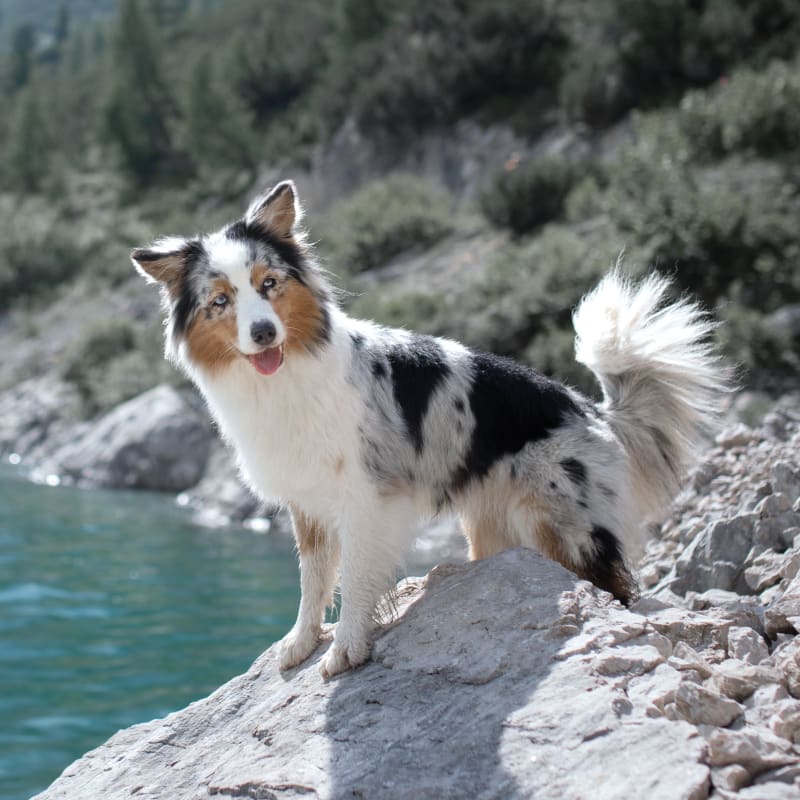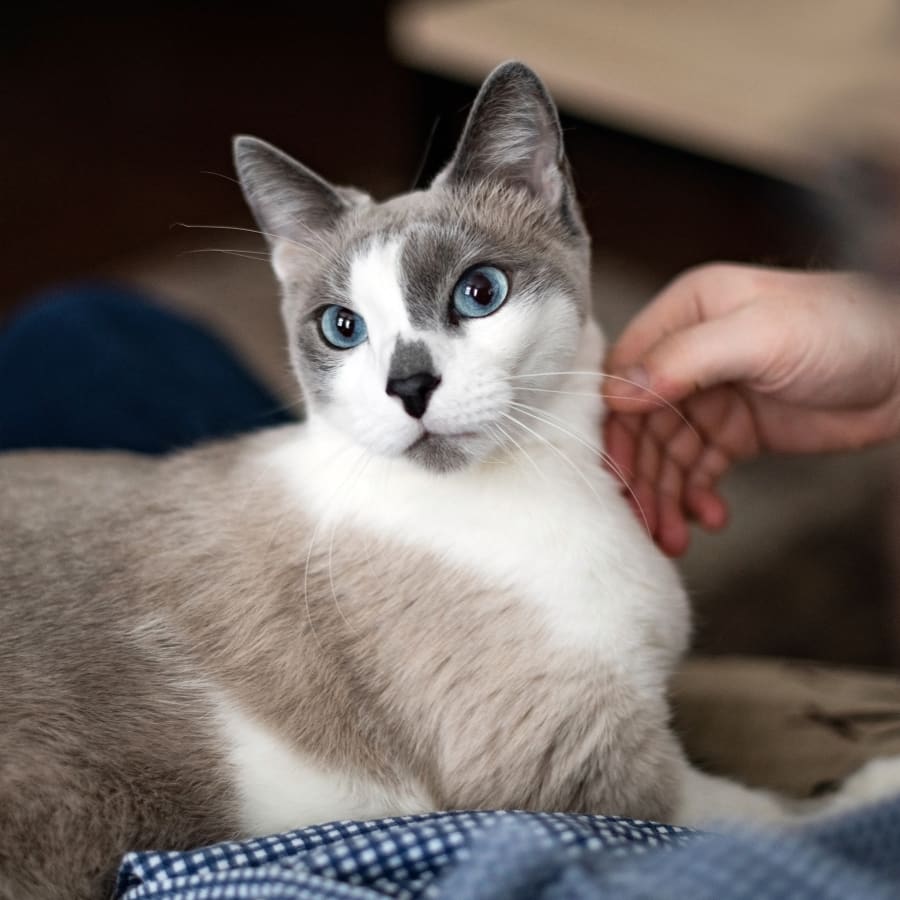Understanding Ophthalmology Veterinary Procedures for Cats and Dogs: Insights from Dog Ophthalmologists
Some of the most common ocular procedures and tests we perform for cats and dogs at Wachusett Animal Hospital and Pet Retreat are eyelid mass removal, Schirmer tear tests, Tonometry tests (to test ocular pressure), and Wood's Lamp examinations (to test for ulcers in the eye).
We are fully equipped for ophthalmic examinations, diagnostics, and ophthalmic surgical procedures. We may, however, also recommend your pet make an appointment with our traveling board-certified surgeon for more advanced surgical procedures.


Common Eye Problems in Pets
Some of the most common eye problems in pets include:
- Cataracts
- Glaucoma
- Abrasions
- Cherry Eye
- Entropion
Symptoms of Eye Problems in Pets
Some of the common symptoms of eye problems in pets are:
- Pain & Redness
- Increased Tear Production
- Visible Third Eyelid
- Corneal Cloudiness
- Dilated Pupils
Our Vet Ophthalmology Services
- Eyelid Mass Removal
Eyelid mass removal is a brief general anesthesia procedure without sutures. The tumor is usually trimmed to the eyelid margin surface and treated with two cryoprobe treatments of 20 seconds each.
- Schirmer Tear Tests
A Schirmer tear test helps your vet determine if your pet is producing enough tears to keep its eyes healthy. Schirmer tear testing can diagnose dry eye (keratoconjunctivitis sicca).
- Tonometry Tests
Tonometry is the measurement of an animal's intraocular pressure (eye pressure) to detect signs of glaucoma or other eye disorders. A tonometer is a handheld device that your veterinarian uses to assess eye pressure in dogs and cats.
Certain pet breeds, such as Dalmations, Cocker Spaniels, Great Danes, Boston Terriers, and Chow Chows, are more prone to primary glaucoma than others. Siamese and Burmese cats are especially susceptible to inherited secondary glaucoma.
- Wood's Lamp Examinations
At Wachusett Animal Hospital and Pet Retreat, we use Wood's Lamp Examinations to test for corneal ulcers in dogs and cats.
A corneal ulcer is a condition in which the eye's outer layer (the cornea) erodes, resulting in a divot or dent. This divot can be superficial (on the surface) or deep (in the eye's layers).
A corneal ulcer can be painful for pets. To alleviate pain, pets might rub the affected eye with their paws or on the carpet. They also keep the eyelids tightly closed to protect the eyes. A discharge may occasionally collect in the corner of the eye or run down the face.
Pet Ophthalmology FAQs
- What are some common eye problems for senior pets?
Cataracts
Sometimes part or all of a lens of the eye develops a cloudy, opaque cataract. Cataracts block light from reaching the back of the eye, and this can result in poor vision or even blindness, depending on the severity.
Glaucoma
The production and drainage of fluid in the eye are precisely balanced to maintain constant, consistent pressure. When this balance is disrupted and pressure within the eye increases, it's called glaucoma.
Symptoms of glaucoma include pain, increased tear production, redness, corneal cloudiness, a visible third eyelid, and/or dilated pupils. In advanced cases, eyes can become enlarged.
- What should I do if my dog/cat has something in its eye?
Start by trying to remove the foreign object or substance by flushing your pet’s eye with saline solution. Unfortunately, this can be difficult if your pet is experiencing eye pain.
Do not attempt to remove the object with your fingers or tweezers, as this can damage the eye.
If you cannot flush the object out yourself, take your pet to your veterinarian as soon as possible so that your pet doesn’t experience any complications.
- Why should I consider cataract surgery for my dog or cat?
Not all dogs and cats that have cataracts necessarily need cataract surgery. In fact, most don't. This is because most of the time, lens opacities in dogs and cats are very small, and don’t interfere much with vision.
Only a pet ophthalmologist can determine if cataract surgery is required for a given patient. It is usually only done when the cataract is severely hindering the animal's ability to see.
Cataract surgery is not a life-saving surgery — it is a quality-of-life surgery. Restoring a blind dog or cat's vision with cataract surgery can give the animal a new lease on life.
For a blind dog or cat to again be able to see its owner, play with toys, look out the window and actually see things is life-changing for the patient and their owner. This is especially true if the animal is elderly and also deaf or hard of hearing, and/or has dementia or cognitive issues.
- What is cherry eye and how is it treated?
Dogs have three eyelids: two that are visible and a third one that is usually hidden from view in the inner corner of the eye. The third eyelid contains a tear-producing gland. This gland is also usually invisible, but some dogs have a congenital weakness of the ligaments that hold it in place.
When these ligaments fail, the gland pops out of its normal location, and it looks like there is a “cherry” stuck at the inner corner of the eye.
To treat cherry eye, a veterinarian will perform a simple surgery to attach the gland back to a more normal position.
- My dog has Entropin (eyelids that roll inwards). What are the treatment options available to me?
When a dog's eyelids roll inwards, hair rubs on the surface of the eye each time the dog blinks. This causes pain, and increased tear production, and will eventually damage the cornea if left untreated.
If entropion has developed because of a condition that will eventually resolve, a vet can temporarily suture the eyelids into a more normal position. In other cases, surgery may be necessary to permanently repair abnormal eyelid anatomy.
Welcoming Cats & Dogs to Our Animal Hospital
Wachusett Animal Hospital and Pet Retreat is accepting new patients! Our experienced vets are passionate about the health of Westminster companion animals. Get in touch today to book your pet's first appointment.
